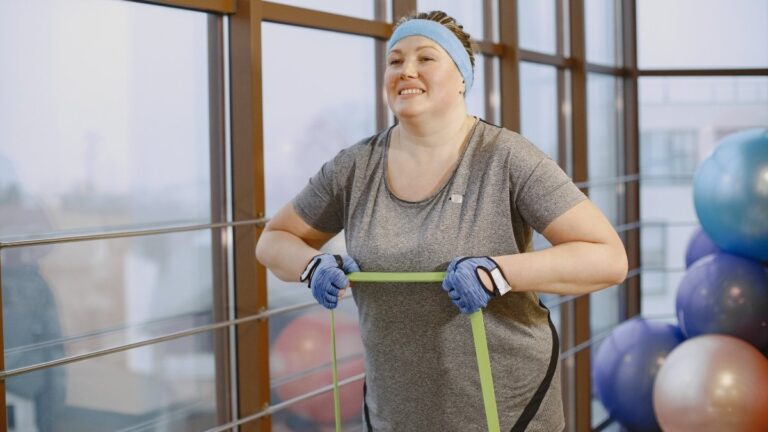Doctor Shares 6 Tips for Parents to Build Healthy Kidneys in Kids from a Young Age

Did you know kids’ kidneys work twice as hard as adults’? Yet, most parents overlook early kidney care—until problems arise. Poor hydration, salty snacks, and missed bathroom breaks silently strain these vital organs. By the time symptoms appear, damage may already start.
Kidney issues in children often go unnoticed. They can lead to lifelong health battles—high blood pressure, stunted growth, even dialysis. But here’s the good news: small daily habits make a huge difference. A leading pediatric nephrologist shares six simple, science-backed tips to protect your child’s kidneys from the start.
From smart hydration tricks to avoiding hidden dangers in medicine cabinets, these steps are easy to follow. Start today to give your child the gift of lifelong kidney health. Let’s explore how.
1. Encourage Proper Hydration – The Right Way
Kidneys rely on adequate water to filter toxins efficiently. Children often forget to drink water, leading to dehydration, which strains kidney function. Sugary drinks (sodas, packaged juices) worsen the problem by overloading kidneys with excess sugar and artificial additives.
Water helps maintain blood volume, allowing kidneys to flush waste without overworking. Teach kids to drink water regularly, even if they’re not thirsty. Infuse water with fruits (like lemon or berries) to make it appealing. Avoid caffeine-loaded beverages, as they dehydrate. Hydration also prevents urinary tract infections (UTIs), a common risk for young kidneys.
Tips:
- Offer water every 1–2 hours, especially after playtime.
- Replace sugary drinks with coconut water or homemade fresh juices (diluted).
- Use fun, colorful bottles to motivate kids to sip more water.
2. Limit Processed & High-Sodium Foods
Excess salt forces kidneys to work harder to balance electrolytes, raising long-term risks of hypertension and kidney damage. Processed snacks (chips, instant noodles, canned foods) contain hidden sodium and preservatives that accumulate toxins. Kids’ kidneys are smaller and less equipped to handle such loads.
Opt for fresh fruits, veggies, and unsalted nuts as snacks. Read labels for “low-sodium” options—children under 9 need <1,500mg sodium/day. Home-cooked meals with herbs/spices (instead of salt) are safer. High sodium also leads to kidney stones, even in children.
Tips:
- Swap chips with air-popped popcorn or cucumber slices.
- Rinse canned beans/veggies to reduce sodium by 40%.
- Avoid processed meats (sausages, hot dogs)—choose grilled chicken or tofu.
3. Promote Regular Physical Activity
Exercise improves blood circulation, helping kidneys filter waste effectively. Active kids maintain healthier weights, reducing obesity-linked kidney diseases (like diabetes or hypertension). Sedentary habits slow metabolism, increasing toxin buildup.

Even 30–60 minutes of play (cycling, swimming, sports) daily supports kidney and heart health. Physical activity also regulates blood pressure, a key factor in kidney longevity. Encourage outdoor games over screen time to prevent childhood obesity, a major kidney risk.
Tips:
- Family walks or dance sessions make fitness fun and engaging.
- Limit screen time to <2 hours/day to avoid inactivity.
- Enroll kids in sports teams to build lifelong healthy habits.
4. Teach Healthy Bathroom Habits Early
Holding urine for too long can lead to urinary tract infections (UTIs) and kidney strain, as stagnant urine allows bacteria to multiply. Over time, this habit may cause bladder dysfunction and even kidney damage in severe cases. Teach kids to listen to their body’s signals and avoid delaying bathroom breaks, especially during school or play.

Encourage them to urinate every 2-3 hours and fully empty their bladder. For younger children, set gentle reminders and ensure they have easy bathroom access. Proper wiping (front to back for girls) also prevents bacterial infections that could reach the kidneys.
Tips:
- Establish a “pee before leaving” rule (e.g., before car rides or bedtime).
- Teach proper hygiene to prevent UTIs—critical for kidney health.
- Watch for signs of holding urine (squirming, leg-crossing) and intervene promptly.
5. Avoid Overuse of Painkillers & Medications
Common over-the-counter (OTC) pain relievers (like ibuprofen or high-dose acetaminophen) can harm kidneys when used frequently or in excess. Kidneys filter these drugs, and prolonged use may reduce blood flow to them, causing damage. Antibiotics, if misused, can also strain renal function.

Always consult a pediatrician before giving medications, even for fevers or mild pain. Opt for natural remedies (warm compresses, hydration) when safe. Never use adult dosages for children—kidneys in kids are still developing and more vulnerable.
Tips:
- Use painkillers only when necessary and at the correct child dosage.
- Try natural alternatives like massage or lukewarm baths for minor aches.
- Store medications safely to prevent accidental ingestion, which can cause acute kidney injury.
6. Schedule Regular Pediatric Check-ups
Early detection of kidney issues is crucial, as symptoms often appear late. Routine pediatric visits should include blood pressure checks (high BP can indicate kidney problems) and urine tests to detect protein or blood—early signs of kidney dysfunction.

Children with a family history of kidney disease, diabetes, or obesity need closer monitoring. Annual check-ups help track growth and catch abnormalities early, preventing long-term damage. If a child has frequent UTIs or swelling, request a kidney function test (e.g., serum creatinine).
Tips:
- Ensure annual urine tests if your child has risk factors (obesity, family history).
- Monitor for symptoms like fatigue, puffiness, or changes in urine color/odor.
- Keep vaccinations updated (e.g., HPV, flu) to prevent infections that stress kidneys.
General Tips:
- Keep kids hydrated with water, not sugary drinks.
- Cut back on salty snacks and processed foods.
- Encourage daily play and movement for kidney health.
- Teach them not to hold in urine for too long.
- Use painkillers carefully—ask a doctor first.
- Schedule regular check-ups to catch issues early.
Final Thought:
Your child’s kidneys are silent heroes—working tirelessly to filter toxins, balance fluids, and keep their growing bodies thriving. But these vital organs don’t ask for attention until something goes wrong. The good news? A few simple, everyday habits can shield them from harm and set the stage for lifelong health.
Imagine this: A single glass of water instead of soda, a handful of nuts over chips, or a timely bathroom break—these small choices add up to big protection. Kidney damage often creeps in unnoticed, but with these six doctor-backed tips, you’re not just preventing problems—you’re building resilience from the inside out.






